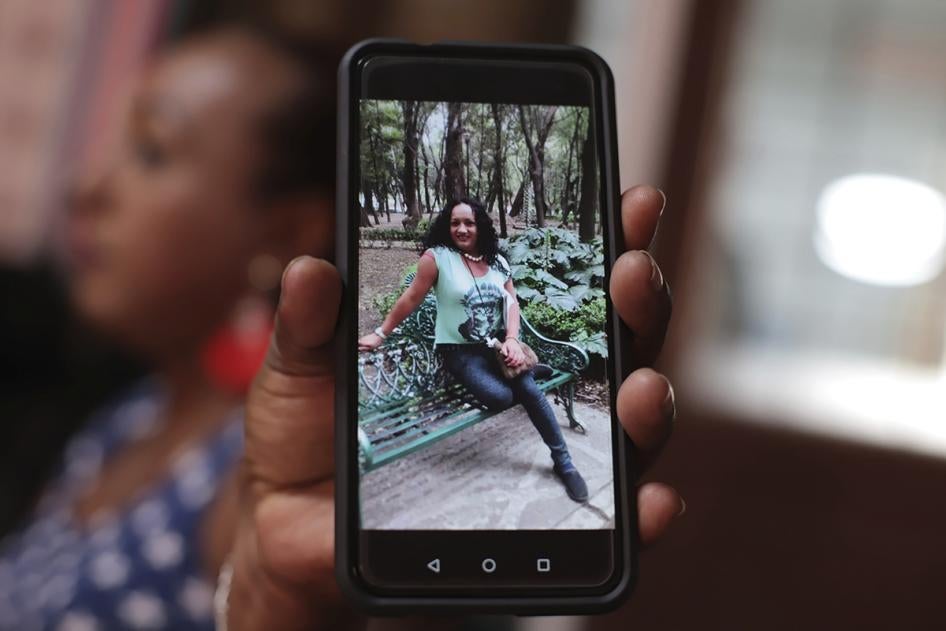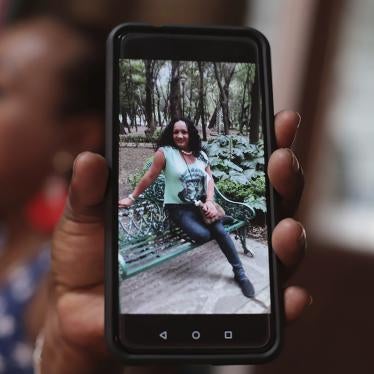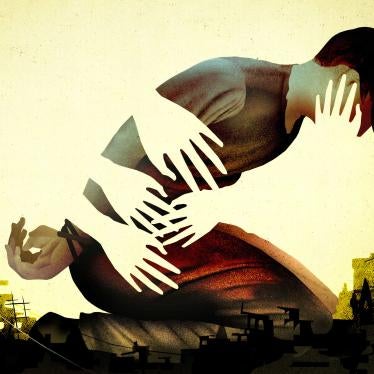(Washington, DC) – A judge in San Salvador has found three police officers guilty of the January 2019 killing of Camila Díaz Córdova, a transgender woman, and sentenced each to 20 years in prison, Human Rights Watch said today. The court’s July 28, 2020 judgment is pivotal for the rights of transgender Salvadorans as it is the first homicide conviction for the killing of a transgender person in the country.
“This landmark ruling is much needed in a country where LGBT Salvadorans and their families rarely see justice for violent crimes,” said José Miguel Vivanco, Americas director at Human Rights Watch. “The outcome of Camila’s case sends a powerful message to Salvadoran society that anti-LGBT violence will not be tolerated.”
In the early morning of January 31, 2019, three police officers, responding to a public disorder complaint, picked up Díaz Córdova, 29, and put her into a police vehicle. Prosecutors said that the officers then brutally assaulted her and threw her out of the moving vehicle. Díaz Córdova died from her injuries on February 3 at Rosales National Hospital in San Salvador. The judge held that the evidence, including the vehicle’s GPS tracking, the location where Díaz Córdova was found, and Díaz Córdova’s autopsy report established the officers’ criminal liability.
Between October 2019 and April 2020 alone, at least seven trans women and two gay men were murdered in El Salvador, with details in the cases suggesting that the killers were motivated by hatred based on the victims’ gender identity or sexual orientation.
Victoria Pineda, a trans woman who was one of the victims, was found naked in Ahuachapán in November 2019 with her face disfigured and covered in logs and a car tire. Bianka Rodríguez of COMCAVIS, a transgender rights organization in El Salvador, said she believed Victoria was “crucified,” with the tire symbolizing a crown of thorns and the logs the wooden crossbar. Tita Andrade, another transgender woman, was found with burns over 90 percent of her body in March 2020 in La Unión. Such symbolic and brutal murders are often committed against people accused of “moral crimes.”
In 2015, the Salvadoran Legislative Assembly recognized the gravity of homicides motivated by hatred of a person’s sexual orientation or gender identity and modified the Penal Code to elevate the penalties for such killings to up to 70 years in prison, categorizing them as aggravated homicides. A representative of the Human Rights Ombuds office in El Salvador told Human Rights Watch that to date, prosecutors have tried to classify just three killings of LGBT people, including the murder of Díaz Córdova, as hate crimes. In all three cases, the Ombuds office said, judges dismissed the hate crimes charges on the grounds that there was insufficient evidence. Though Díaz Córdova’s case did not ultimately include hate crimes charges, it is the first that has resulted in a conviction for the homicide of the transgender person.
Díaz Córdova’s case also highlights the perils of current United States policies limiting asylum claims. Díaz Córdova tried on various occasions to flee violence that she faced in El Salvador on the basis of her gender identity, including from organized criminal organizations. She finally reached the United States in August 2017, but Immigration and Customs Enforcement (ICE) authorities there detained her and deported her in November of the same year. Friends of hers told Human Rights Watch that ICE officials tricked her into signing a removal order. She was killed in El Salvador just over a year after her return, facing the same fate as many other Salvadorans recently deported from the United States.
“LGBT people have a right to live in a country that respects and protects their basic right to life,” Vivanco said. “The justice system should ensure that those responsible for anti-LGBT violence are held accountable, including by pursuing hate crimes charges where appropriate.”
|
News Release
El Salvador: Police Officers Convicted for Transgender Murder
Further Efforts Needed to Prevent, Prosecute Hate Crimes
Your tax deductible gift can help stop human rights violations and save lives around the world.
Region / Country
Topic
Most Viewed
-
June 3, 2025
“They’re Ruining People’s Lives”

-
January 25, 2024
“We’re Dying Here”

-
November 25, 2019
A Dirty Investment

-
April 27, 2021
A Threshold Crossed

-
November 19, 2012
Losing Humanity





